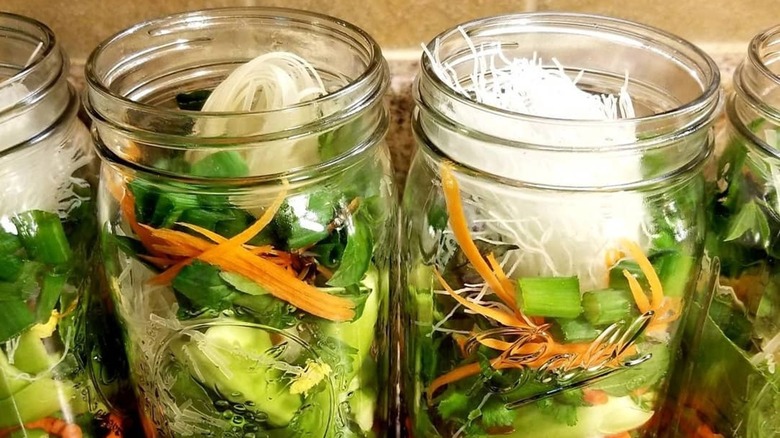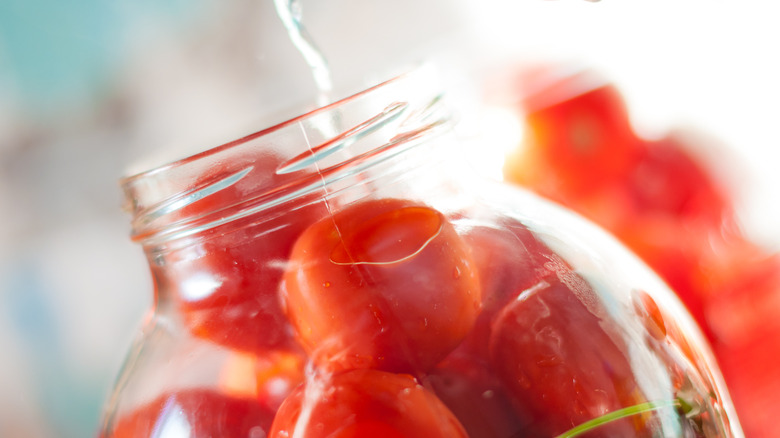When Filling Mason Jars With Hot Soup, Be Sure To Warm The Glass First
Mason jars are fantastic, versatile containers: They're inexpensive, eco-friendly, and perfect for everything from pickles to parfaits. Lately, a fun, simple hack for meal-prepped mason jar soups has been going viral — but the recipe comes with a serious caveat.
When content creator and New York Times bestselling cookbook author Carleigh Bodrug posted a TikTok explaining how to create a soup base in a mason jar, fans went wild. The recipe involves mixing a simple soup base, like chili garlic sauce and miso paste, in the bottom of a mason jar before topping it with veggies, protein, and skinny vermicelli noodles. You can refrigerate the jar for later, then pour hot water on it when you're ready to eat — kind of like custom, nutritious cup noodles.
However, if you're keeping your soup jars in the freezer or refrigerator, don't dump boiling water in as soon as you take them out. Hot water could cause thermal shock, which is the scientific term for when a rapid temperature change causes an object — in this case, a mason jar — to break. While Bodrug's recipe might save time, you should take a few extra minutes to warm up the jar before heating the soup. That goes for any situation where you're mixing mason jars with hot water, like canning or pickling, too.
How should you warm up a mason jar?
Warming up your mason jars might seem like an unnecessary precaution. After all, mason jars are generally made of thick, sturdy glass — they can't break that easily, right?
Wrong! It's important to warm up mason jars specifically because they're thick and sturdy. Glass doesn't conduct heat well, so when you pour hot liquid into a jar, the inside heats and expands. The outside doesn't get as hot though, so if the inside expands too far, the entire vessel will shatter. That isn't as much of a problem for thin glass, since it heats all at once. However, it takes longer for heat to permeate through thick glass, making it extra fragile. So how do you keep it from breaking?
Glass might not be a good heat conductor, but metal is. If you put a metal spoon in your jar before pouring the water in, the metal will help absorb some of the heat. That might not be enough on its own, though, so take your time and pour the water in slowly to give the glass time to warm up. You can also try slowly warming the glass with warm water and then microwaving it to cook the noodles.
The same goes for situations where you're exposing glass to heat from the outside in. When submerging a jar in hot water — like if you want to sterilize it for canning foods at home — put your jars in water first, then bring the water to a boil.

